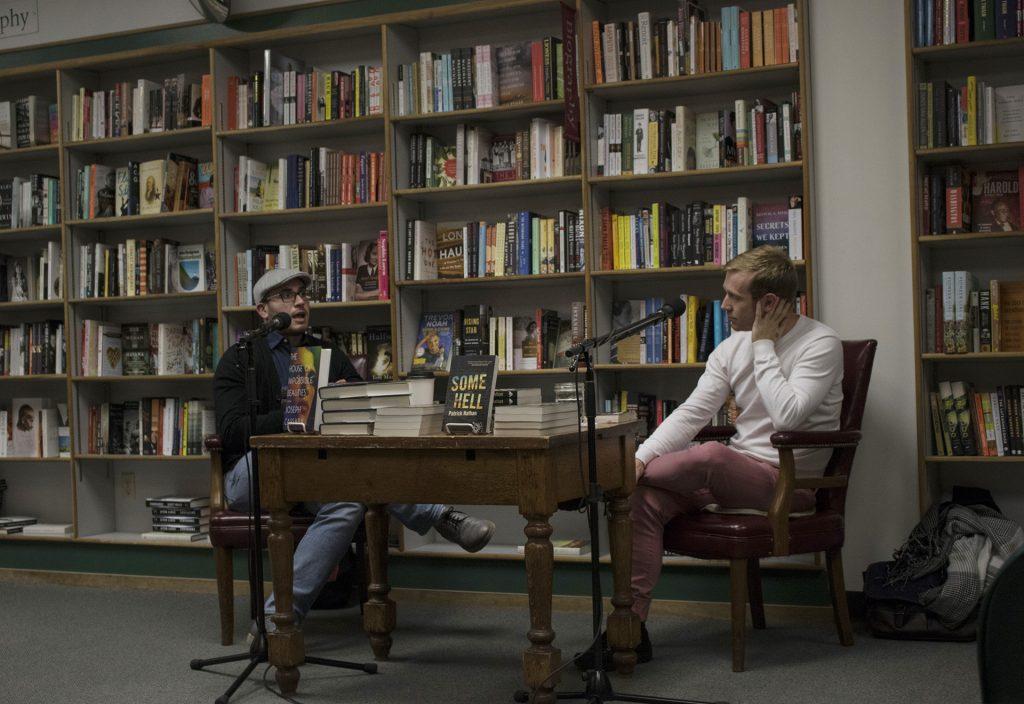Minneapolis-based author Patrick Nathan read from his début novel, Some Hell, at Prairie Lights on Wednesday evening. The reading was accompanied by a Q&A led by Writers’ Workshop graduate Joseph Cassara.
“It was really wonderful to walk in the door downstairs and see my stack of books sitting on the table first thing — validating, in a word,” Nathan said.
The novel is centered on the experiences of a rural Minnesota teenager, Colin, in the wake of his father’s suicide. Secrecy and unshared feelings of grief gradually dissolve the bond between him and his mother, Diane, while excerpts from his father’s journals woven through the text seem to reveal a family plagued with an inability to communicate long before his death.
This inability drives much of the conflict in the novel. When Cassara suggested that it could be a product of the family’s Midwestern culture, Nathan agreed.
“[Midwesterners] don’t talk,” Nathan said. “So much of this novel could be prevented if [the family] just spoke with each other.”
On top of the fallout from his father’s death, Colin must cope with feelings of confusion over his emerging sexuality — feelings that are amplified when he becomes the target of advances from a predatory male history teacher.
These experiences add to the layers of secrecy that typify how the characters interact with each other.
“I think it opens up so much space, in a work of fiction, to have an interior distance between what a person is projecting and what they are feeling,” Nathan said. “And queer characters are often ideal for that, because there’s a vast interior distance in a lot of queer people because whether or not they’re conflicted about who they are now, they most likely have been at some point.“
Nathan, who had written short fiction and essays prior to completing Some Hell, said the novel went through 14 drafts before he finally submitted it for publication. He said working on the novel was challenging compared with his previous work; because of its scale, he could not be as certain of the work’s final form.
“With short fiction, the end is in sight,” he said. “[A novel] requires a belief in yourself that you’re actually going to finish it. You’ve got to believe that one day, with time, one day it will be what you want it to be, even if you don’t know how to get there yet.”
Self-discipline and satisfaction with the story itself were the two other ingredients that set Some Hell apart from his previous failed attempts to complete a novel, Nathan said.



